| Composer's Voice Concert | ![[ Vox Novus - the new voice for contemporary music ]](http://www.voxnovus.com/img/Vox_Novus_Logo_black.png) |
| Story Telling | |
| October 8, 2003 | |
| The Living Room at the Gershwin Hotel 7 East 27th Street New York, NY 10016 |
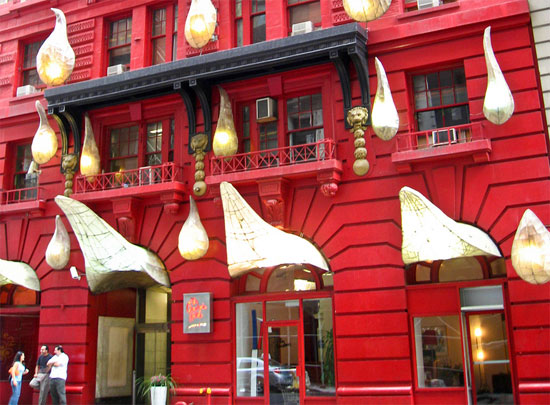 |
Vox Novus and Living Music Foundation would like to present a Composer's Voice concert featuring Eric Schwartz. Performances by baritone Nathan Hetherington, guitarist Oren Fader, percussionist Mike McCurdy, and pianists Laura Barger, Ashlee Mack, and Eric Schwartz. |
| Title | Composers | Performers |
| candlesticks: tombstones amoung the living | Robert Voisey | Douglas Shapiro - baritone Robert Voisey - tenor and piano |
| Spirits of the Dead | Eric Schwartz | Nathan Hetherington - baritone and Eric Schwartz - piano |
| Islands That Never Were | James Romig | Ashlee Mack - piano solo |
| Rock Star | Eric Schwartz | Mike McCurdy - percusion Laura Barger - piano |
| Apparitions | Orianna Webb | Ashlee Mack - piano solo |
| The Haunted Palace | Eric Schwartz | Oren Fader - guitar solo |
| Performers | |
| Laura Barger | |
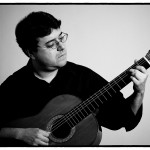 |
Oren Fader is a classical guitar performer described by Guitar Review as follows: "His scholarship, technique, and intelligent musicianship are plainly evident and the beauty of his tone is consistently compelling". He has performed extensively in London, Tokyo, Munich, Amsterdam, Montreal, Russia, Mexico and throughout the United States. Concerto performances include the Villa-Lobos Guitar Concerto with the Orpheus Chamber Orchestra; he has appeared in numerous other soloist and orchestral appearances. As a member of the new music ensembles Cygnus and Parnassus, he has performed over 30 solo and chamber works with guitar. Mr. Fader can be heard on over 15 recordings, in repertoire ranging from the 19th to late 20th centuries. Mr. Fader received his undergraduate degree from SUNY Purchase and his Master of Music (Performance) degree from Florida State University. Since 1994 Mr. Fader has been on the guitar faculty and directed the Guitar Chamber Music program at the Manhattan School of Music. |
| Nathan Hetherington is currently working towards a Master's in Jazz Voice at the Manhattan School of Music. He is also an active conductor, founding and leading "The Mahgonny Ensemble", a new music group at Vassar College. | |
 |
Ashlee Mack, specializing in contemporary music, has recently performed new compositions by Jackson Hill, Guy Klucevsek, Jeffrey Leeman, and James Romig, and classic contemporary works by Aaron Copland, Henry Cowell, and George Crumb. She first performed with the Society for Chromatic Art in 2002, and recently presented research at the College Music Society National Conference in Kansas City. In addition to master classes with Kevin Sharpe, Barry Snyder, and Paavali Jumppanen, Ms. Mack earned her undergraduate degree in piano performance at Bucknell University, where she studied with Lois Svard and was awarded the Barbara Watson Grever Prize in Music. |
| Mike McCurdy | |
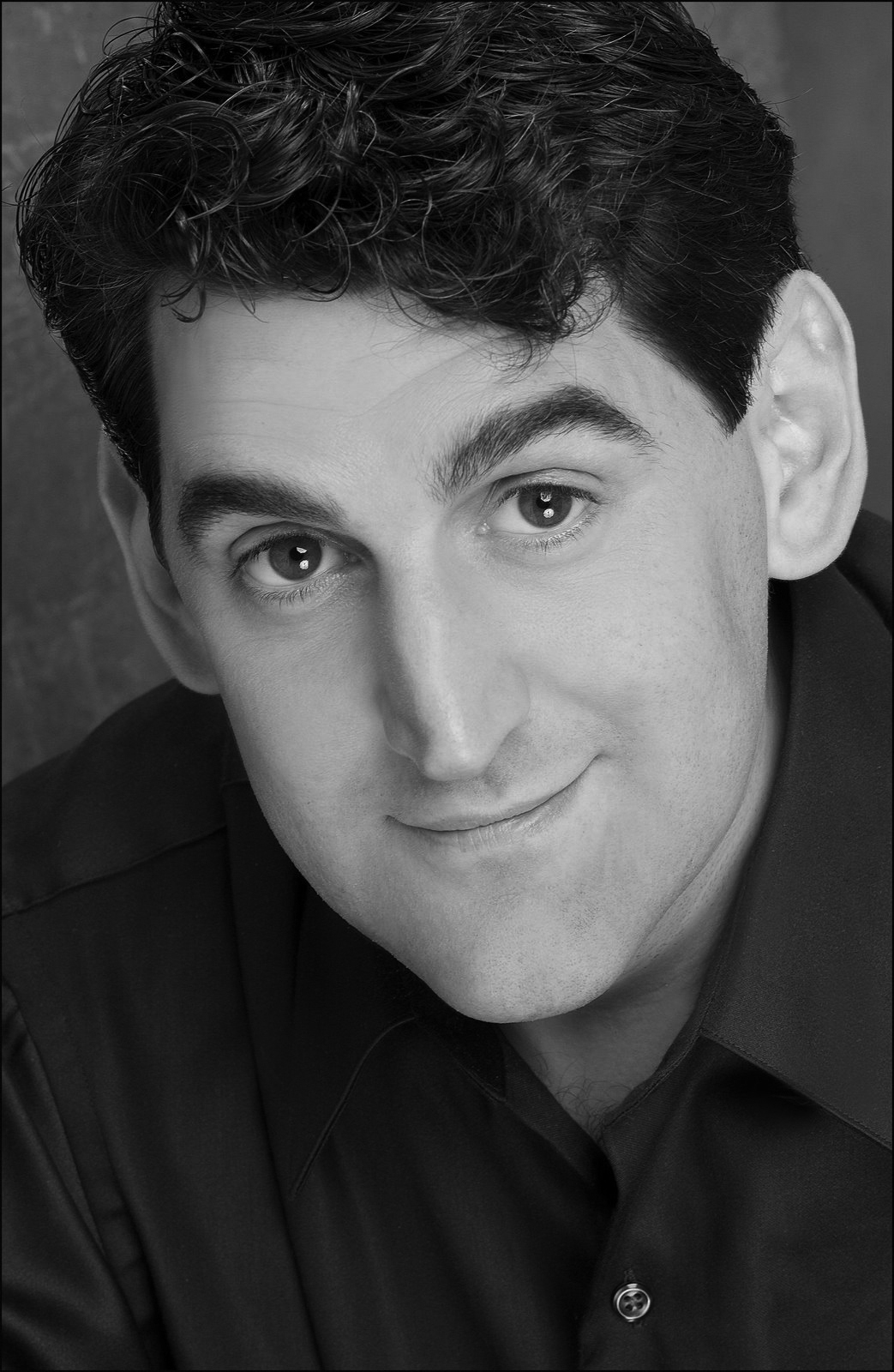 |
Doug Shapiro is an actor and baritone, singing the new works of composers and lyricists in over thirty projects with BMI and the NYU graduate program in music theatre writing. Doug is currently the voice of Days Inn in a series of National TV Commercials. Doug Shapiro’s acting credits include Smudge in “Forever Plaid”, Feste in “twelfth Night”, Fagin in “OLIVER!” and Algernon in the musical version of “Ernest in Love” He has also recently been the Master of Ceremonies and a featured vocalist of a MidWest tour of IN THE MOOD--a 15-piece 1940's Big Band. |
| Composers | |
| James Romig compositions have been performed throughout the United States and Europe in recitals, music festivals, and as accompaniment to dance. In the tradition of his musical mentors, Charles Wuorinen and Milton Babbitt, Romig's music celebrates dramatic balance, exuberant virtuosity, and rigorous formal integrity. Among his commissioned works are compositions for the Manhattan Chamber Orchestra, the Interlochen Arts Academy, the Percussive Arts Society, and new-music ensembles such as Suono Mobile, Helix!, and the New Vienna Chamber Ensemble. In recent seasons, his music has been included on concerts by the University of Iowa Symphony Orchestra, the Ensemble Musicattuale, the Eastman Contemporary Percussion Ensemble, Duo Contour, and Holy Trinity Choirs. Recent festival performances include the 50th Annual Fulbright Music Gala, the UTSA Festival of New, and Wien Modern. Romig holds a Ph.D. in music theory and composition from Rutgers University, and undergraduate and masters degrees in music from the University of Iowa. A dedicated educator, he gives frequent lectures and master classes, and is currently on faculty at Western Illinois University. He also serves as music director and principal conductor of The Society for Chromatic Art, a contemporary-music ensemble based in New York City. | |
 |
Eric Schwartz has studied composition at the Cleveland Institute of Music, New York University, and both the Interlochen and Aspen Summer Music Festivals. Past teachers have included Donald Erb, Margaret Brouwer, George Tsontakis, and Justin Dello Joio. His diverse musical background is also made up of screaming and performance art for various metal and art rock groups, playing guitar in jazz big bands, and accompanying modern dance classes on the piano. Primarily interested in a synthesis of seemingly disparate musical archetypes, Schwartz is always working on a variety of genre bending projects. Schwartz is currently on the music theory faculty of New York University. He is a cofounder/resident composer of the Brooklyn based new music group Forecast Music, presenting an ongoing series of monthly concerts in NYC. |
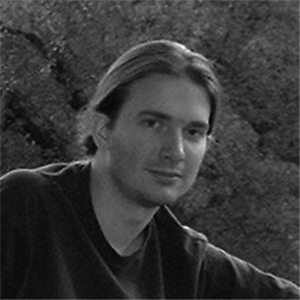 |
"Robert Voisey composes music as a natural part of his life…” - Noah Creshevsky Voisey has studied composition at the State University of New York at Stony Brook, the College of Tel Hai in the Upper Galilee, Israel and the City University of New Your at Brooklyn College. His teachers have included Noah Creshevsky, George Brunner, Aiten Schteinberg, and Oded Zehavi. Voisey has enjoyed debuts of his music all around the United States and abroad, including performances broadcasted on “Kol Muscia” (the voice of music) Israeli National Radio. Recently he has had debuts of his song cycle “Music in Motion” in Buenos Aires Argentina with La Scala de San Telmo and at the Gemeindehaus der Zionskirche in Worpswede Germany, as well as a New York debut of his piece “Lullaby” at the “Music in the Raw” concert at the AugustArts festival. As founder of Vox Novus, his goal is to promote contemporary composers and their works. |
| Orianna Webb's music has been described as "abound[ing] in urgent and mysterious detail" (Cleveland Plain Dealer). Her newest orchestral work, Xylem, was the winner of the 2003 Leo Kaplan Award, the highest honor in the ASCAP Foundation Morton Gould Young Composer Awards. Ms. Webb was recently awarded a First Music Commission from the New York Youth Symphony for a piano trio to be premiered at Carnegie Hall. Other performances slated for the current season include Xylem under the baton of Emily Freeman Brown at the Bowling Green State University New Music and Art Festival, a new chamber work with guitar commissioned by Guitars International for premiere by Daniel Lippel in Cleveland, and the premiere at the University of Iowa in Iowa City of a new work commissioned by SCI and ASCAP. Ms. Webb's music has enjoyed performances at the Norfolk Contemporary Music Workshop (CT), the Minnesota Orchestra's Composer Readings and Institute, the Newburyport Chamber Music Festival (MA), the 2003 International Trombone Festival (Helsinki, Finland), the Rock Hotel Pianofest Piano Bowl (Society Hall, NY), New Music New Haven, and the Cleveland Museum of Art's AKI Festival of New Music. Her music has been performed by the Yale Philharmonia, the Cleveland Orchestra Youth Orchestra, the Mostly Modern Chamber Music Society, the University of Akron New Music Group/Daedalus, the Music2000 Festival (Cincinnati), AugustArt (Raw Space Studios, NY), and the Ohio & Erie Canal Opera Project. Ms. Webb's music has been recognized with prizes from the International Alliance for Women in Music, the International Trombone Association, the National Federation of Music Clubs, and the Darius Milhaud Society. A native of Akron, OH, Ms. Webb holds degrees from the Yale School of Music, the Cleveland Institute of Music (CIM), and the University of Chicago. Her teachers have included Martin Bresnick, Margaret Brouwer, John Eaton, Joseph Schwantner, and Roger Zahab, and she has also studied at La Schola Cantorum in Paris with Samuel Adler and Philip Lasser. She studied piano with Nicolas Constantinidis, Ethel Burke, and Anna Grinberg, and bassoon with Dr. Georgia Peeples. Ms. Webb is also a founding faculty member of the Young Composers Program at CIM. | |
Program Notes: |
|
The Spirits of the Dead: I have found over the years that it is nearly impossible for me to drag myself away from the heavy metal music that so dominated my youth. "The Spirits of the Dead", a work with a gothic streak a mile wide, was composed during a period of winter isolation spent in a sublet in Queens. The spooky Poe text inspired me to dig deep into both my musical past, and also into the grab bag of extended performance techniques available to the twenty-first century composer. Falling somewhere in between Peter Maxwell Davies' "Eight Songs for a Mad King" and King Diamond's "Abigail", "The Spirits of the Dead" was the first in a series of song/theater pieces that I've composed in recent years.
The Spirits of the Dead by Edgar Allan Poe Thy Soul shall find itself alone 'Mid dark thoughts of the grey tomb-stone; Not one, of all the crowd, to pry Onto thine hour of secrecy. Be silent in that solitude, Which is not loneliness- for then The spirits of the dead, who stood In life before thee, are again In death around thee, and their will Shall overshadow thee; be still. The night, though clear shall frown, And the stars shall not look down From their high thrones in Heaven With light like hope to mortals given, But their red orbs, without beam, To thy weariness shall seem As a burning and a fever Which would cling to thee forever. Now are thoughts though shalt not banish, Now are visions ne'er to vanish; From thy spirit shall they pass No more, like dew-drops from the grass. The breeze, the breath of God, is still, And the mist upon the hill Shadowy, shadowy, yet unbroken, Is a symbol and a token How it hangs upon the trees,A mystery of mysteries! Islands That Never Were, lasting approximately nine minutes, was commissioned—in its original version for vibraphone and piano—by the Hoffmann/Goldstein Duo, who will premiere the work in New York, Baltimore, and Germany in the fall of 2003. The solo piano version is written for Ashlee Mack, who will perform the work in New York in May. The work’s title is a reference to fractal-generated “landscapes” illustrated in Benoit Mandelbrot’s text, The Fractal Geometry of Nature. In Mandelbrot’s groundbreaking study, simple but precise rules produce highly complex fractal images that appear, counter intuitively, to be completely “natural.” Rock Star Way back in the dark ages, during my tenure as an undergrad at the Cleveland Institute of Music, it was decided that I should use my senior year as an opportunity to challenge myself with projects I had always feared. One of these was the composition of an unaccompanied work, a genre I felt didn't play to my strengths. I sweated and strained, and out came a violin piece. This difficult work received one garbled performance before being put on the shelf to collect dust. In 2001, inspired by the possibility of a European performance, I cleaned it up, smoothed out the rough edges, and morphed it into a significantly altered piece for viola. I still felt the piece needed something, when I suddenly had a flash of inspiration. It could be perfect for clarinet. It was so obvious, as the character was ideal. Here you have it, in its third and FINAL version: "Rock Star" for solo clarinet. Apparitions In the days following September 11, 2001, I, like many others, did my best to get back to "life as usual" but was subject to shocking, unbidden recollections of the facts, and of images. I was fortunate not to have lost any among my friends and family in the tragedy, but the rogue memories also included urgent realizations of closeness to people I love. These brief piano pieces try to capture the suddenness and intensity of these visitations by memory. candlesticks: tombstone among the living “After September, sometimes the wind blows gently.” – Robert Voisey candlesticks two fragile candles house burning wicks chilling flames billow lit from violent matchsticks wax drips, drips, drips and falls revealing tears of hopeful wishes melting down, down, down leaving empty spaces transformed charred nightmares of dreams burnt quick The Haunted Palace: Ok, so I like Edgar Allan Poe. A lot. There are simply some writers that inspire you to do your best work, and Poe is certainly one of those for me. The Haunted Palace was derived from a scene in the Poe story "The Fall of the House of Usher", and while it is not intended to recreate the actual scene within the story, the oppressive and steadily decomposing atmosphere of Usher permeates both the poem, and the music. Formally, it was great fun allowing the music to steadily decay in the final movements of this piece. Haunted Palace I In the greenest of our valleys, By good angels tenanted, Once a fair and stately palace- Radiant palace-reared its head. In the monarch thoughts dominion- It stood there! Never seraph spread a pinion Over fabric half so fair. II Banners yellow, glorious, golden, On its roof did float and flow; (This-all this-was in the olden Time long ago) And every gentle air that dallied, In that sweet day, Along the ramparts plumed and pallid, A winged odor went away. III Wanderers in that happy valley Through two luminous windows saw Spirits moving musically To a lute's well-tuned law, Round about a throne, where sitting (Porphyrogene!) In state his glory well befitting, The ruler of the realm was seen. IV And all with pearl and ruby glowing Was the fair palace door, Through which came flowing, flowing, flowing, And sparkling evermore, A troop of Echoes whose sweet duty Was but to sing, In voices of surpassing beauty, The wit and wisdom of the king. V But evil things, in robes of sorrow, Assailed the monarch's high estate; (Ah, let us mourn, for never morrow Shall dawn upon him, desolate!) And, round about his home, the glory That blushed and bloomed Is but a dim-remembered story Of the old time entombed. VI And travellers now within that valley, Through the red-litten windows, see Vast forms that move fantastically To a discordant melody; While, like a rapid ghastly river, Through the pale door, A hideous throng rush out forever, And laugh-but smile no more. |
|
In relentlessly developing Vox Novus, first and foremost the reason for Vox Novus’ existence is for the promotion of contemporary composers, their works and the musicians and or entities, which perform and produce contemporary music. To accomplish this, Vox Novus sponsors concerts and a core of musicians and encourages them to perform new music. Through its prominent website, Vox Novus provides resources to the contemporary composer, public access to the new music of its members and an effective means for the distribution of their work. |
| Brought to you by | |||
 |
 |
||
| Funding by | |||
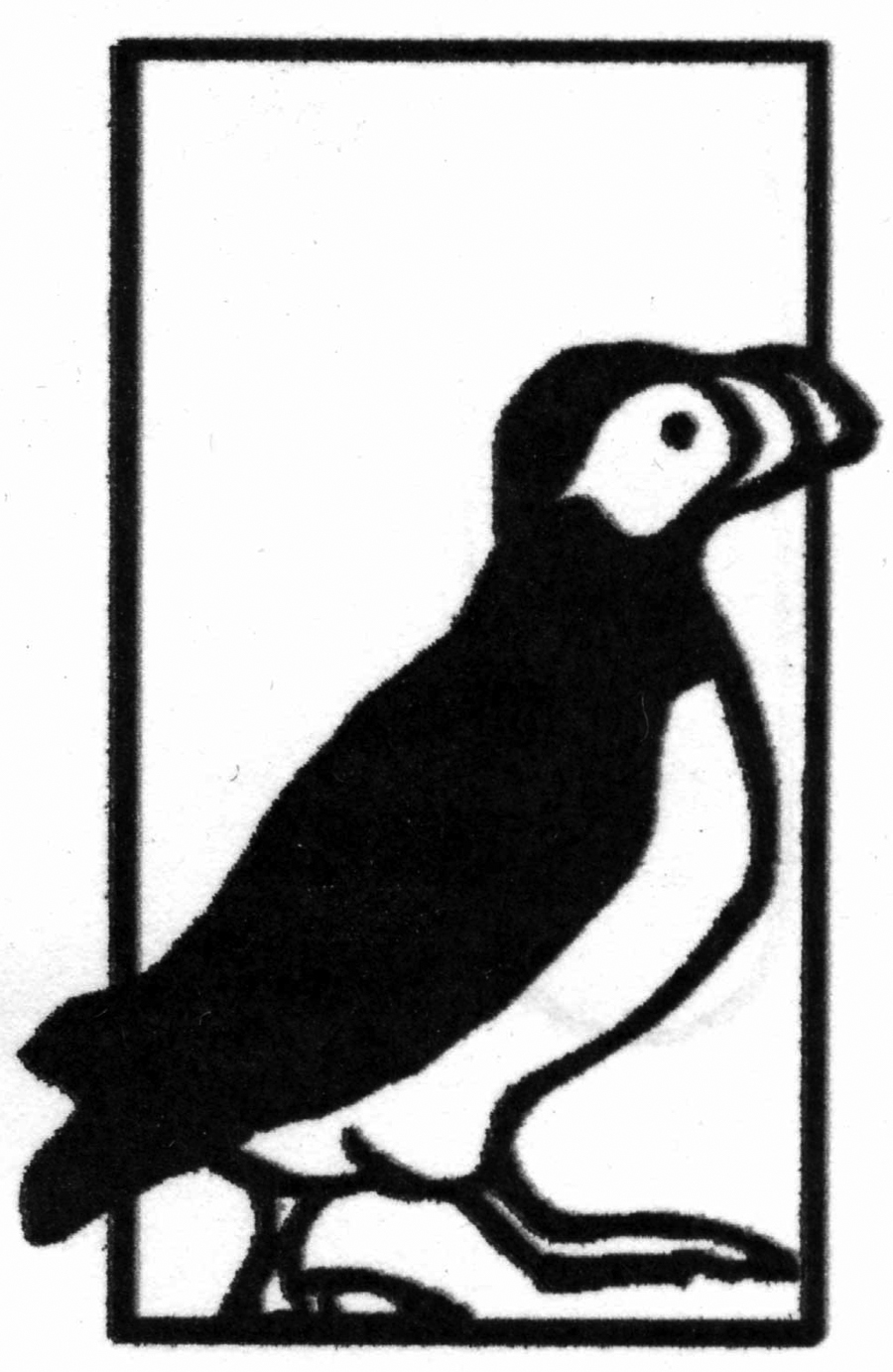 |
|||
| Funding also provided by the Puffin Foundation, "...continuing the dialogue between art and lives of ordinary people." | |||
| Home | ||||||||||||
| Calendar | ||||||||||||
| History | ||||||||||||
| Opportunities | ||||||||||||
| Vox Novus | ||||||||||||
| Site Map | ||||||||||||
| Contact | ||||||||||||
| Hosted by Malted/Media and Kalvos & Damian's New Music Bazaar | ||||||||||||
![[ Vox Novus - the new voice for contemporary music ]](http://www.voxnovus.com/img/Vox_Novus_Logo_black.png) | ||||||||||||
![[ Composer's Voice ]](http://www.voxnovus.com/img/Composers_Voice_Collaboration_Logo.png) | ||||||||||||